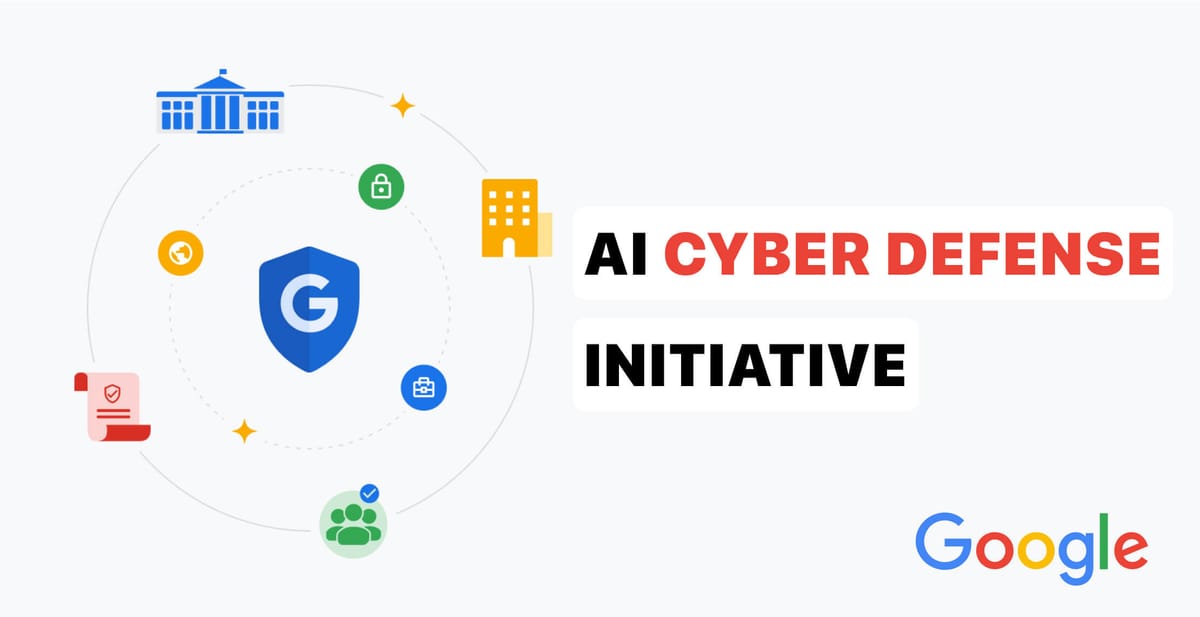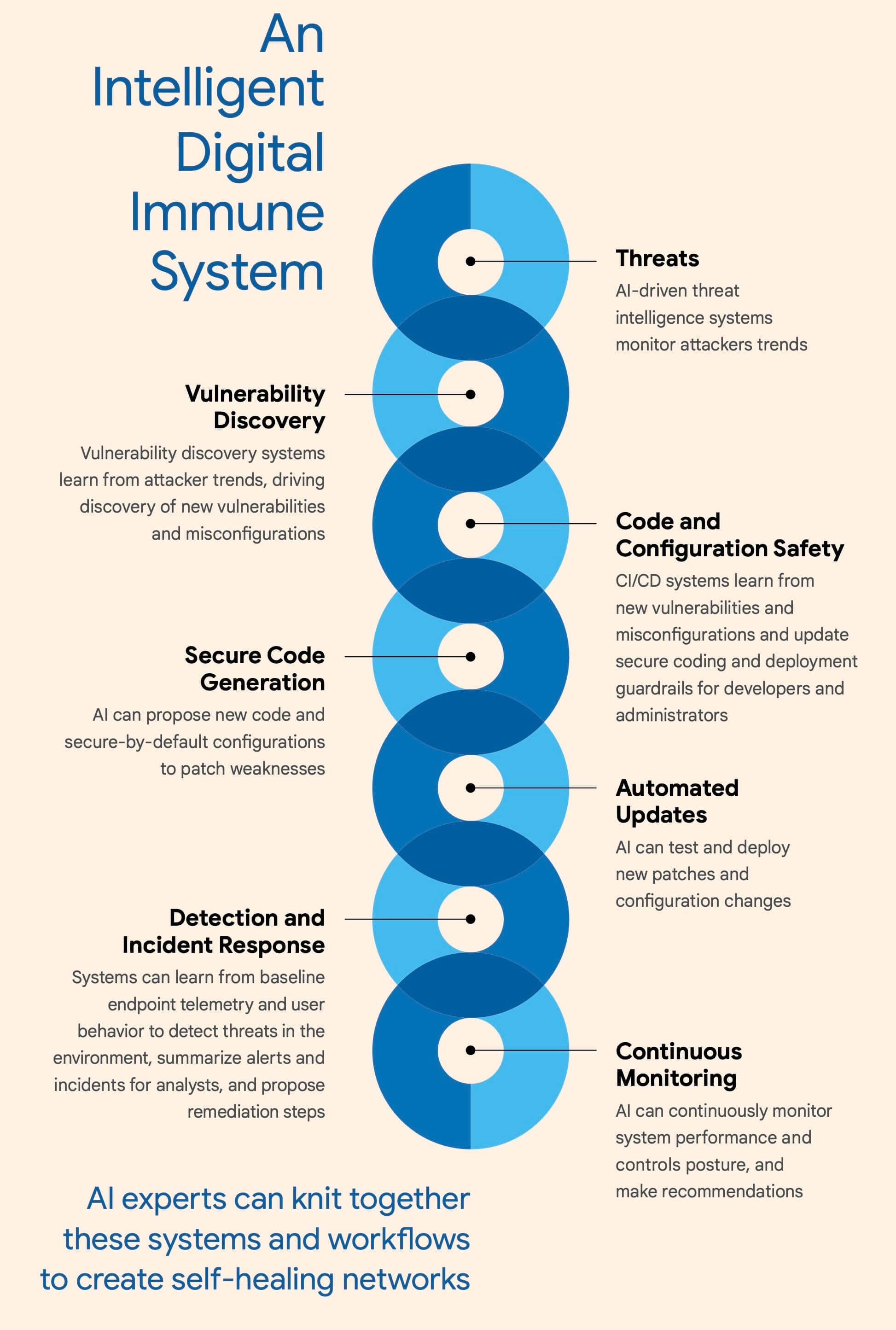
Google sees an opportunity to harness AI's growing capabilities to strengthen cybersecurity and turn the tide against cybersecurity threats that have long plagued the digital world.
Today, the tech giant announced the launch of an AI Cyber Defense Initiative to help transform cybersecurity and use AI to reverse the dynamic known as the 'Defender’s Dilemma.' This refers to how attackers only need to find a single vulnerability in order to compromise a system, while defenders must remain vigilant across an increasingly complex digital landscape to protect against intrusions. This asymmetry has plagued security teams struggling to keep up with growing threats.
Google believes AI is could disrupt this dynamic and finally shift the advantage towards cyber defenders. Through AI's capabilities for processing data at scale, evolving based on new threat behaviors, assisting human analysts with expert knowledge, and even discovering and patching software vulnerabilities autonomously - Google envisions transforming security operations.
The AI Cyber Defense Initiative is backed by significant investments in research partnerships, threat intelligence tools, and security frameworks. The initiative aims to leverage AI and machine learning to automate threat prevention, streamline incident response, uncover network weaknesses before attackers can exploit them, and ultimately build toward an "immune system" for corporate infrastructures.

Google is strategically positioning itself at the forefront of this impending revolution in cyber defense. The company has already invested billions in securing data centers to support AI adoption, including over $5 billion in Europe over the past six years. Furthermore, Google is open-sourcing tools like Magika to aid malware detection and announcing $2 million in new grants to fund AI cybersecurity research partnerships.
To guide the transition, Google has proposed a three-pillar roadmap for policymakers and technologists:
- Secure AI from the ground up through best practices like those in Google's Secure AI Framework
- Empower defenders over attackers by preserving access to models and data
- Advance research cooperation to drive breakthroughs in AI-powered defense
Adoption of this roadmap requires multistakeholder collaboration, given rapid attacker innovation in domains like disinformation. Nonetheless, Google remains hopeful that the power of AI can outweigh its risks. You can read the full report here.

